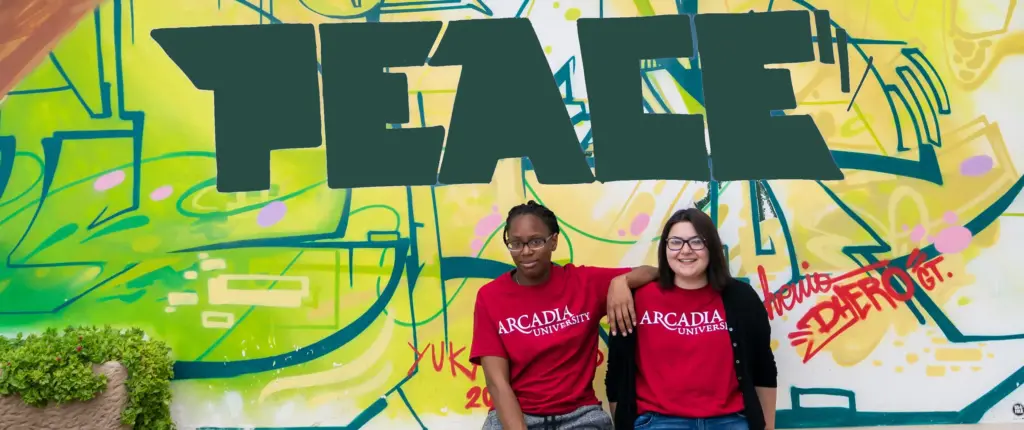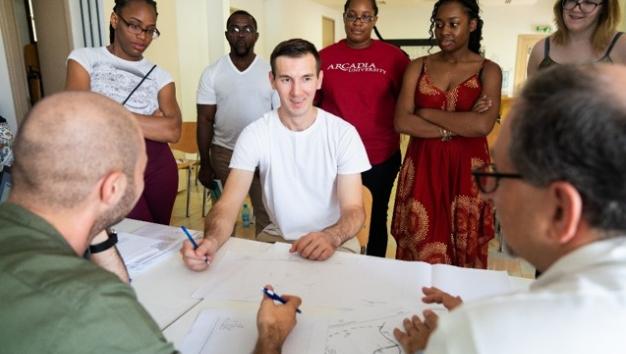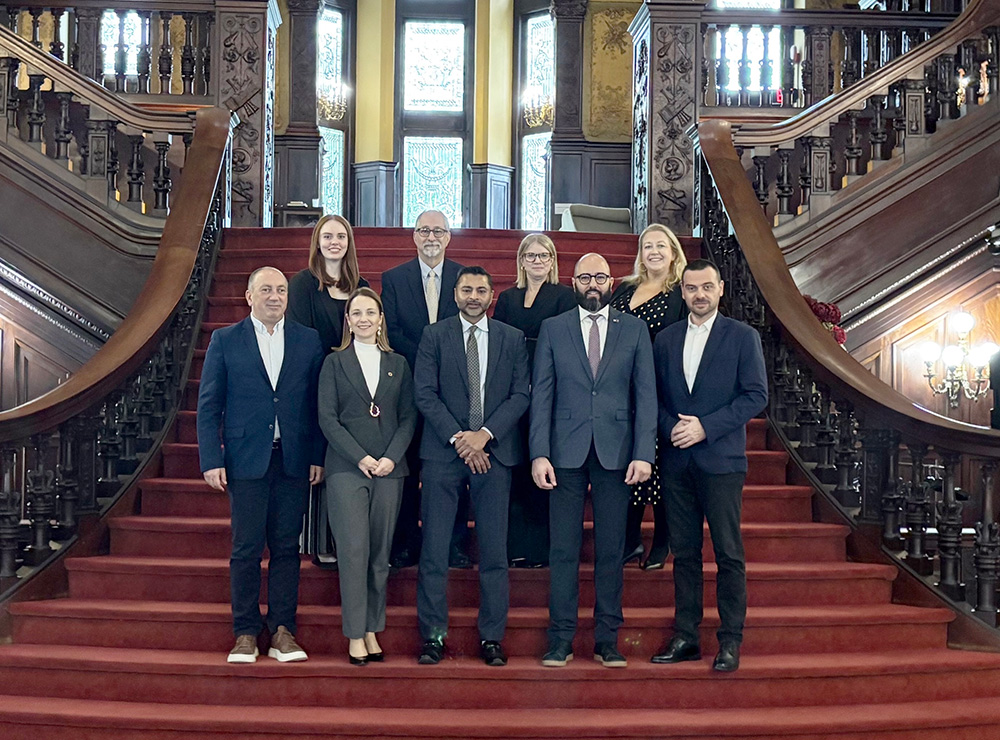Overview
- Degree Level
- Graduate
- Degrees Offered
- Master of Arts in International Peace and Conflict Resolution
- Department
- Historical and Political Studies
- school/college
- College of Arts and Sciences

Arcadia’s International Peace and Conflict Resolution (IPCR) Master of Arts program offers innovative, cohort-based curriculum and experiential learning opportunities. Establish your expertise as a conflict resolution practitioner and build critical, professional networks and collaborative spaces around the world.
Through foundational courses, embedded international fieldwork, hands-on internships, and the IPCR Master Capstone class, Arcadia’s IPCR program will fuel your passions, challenge you academically, and encourage you to connect theory with real-world applications as you prepare to make a positive difference in the world.
Scholarship awards between $6,000 and $15,000 are available. Every student accepted to the program will be considered for a scholarship. No separate application is required. Graduate assistantships may also be available to accepted students who qualify. Please let the IPCR department or Enrollment Management Office know if you are interested in a Graduate Assistantship. For more information, please visit financial aid information.
In our Pre-International Peace and Conflict Resolution program, a pre-IPCR pathway is available to undergraduate students:

Complete an internship related to your interests and area of study in the U.S. or abroad.

Collaboration with the East African Community to enhance peace and security in the region.
 Members of Parliaments from Bosnia-Herzegovina Visit Arcadia as Part of Program to Support Progressive Politicians from the Western Balkans
Members of Parliaments from Bosnia-Herzegovina Visit Arcadia as Part of Program to Support Progressive Politicians from the Western Balkans
